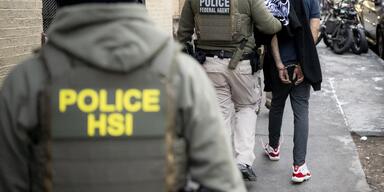
The D.C. Council recently passed the “Standby Guardian Emergency Amendment Act of 2019,” which amends D.C. Code § 16-4801 to add adverse immigration action as a triggering event. We support any tool that will enhance the stability and dignity of our neighbors who hail from other countries and look forward to working with the Council on making this emergency amendment permanent.
Standby Guardianship allows a parent to designate a guardian for her child in case a specified event occurs in the future. The emergency amendment adds adverse immigration action, including immigration detention or deportation/removal as a triggering event. If a parent has designated such a guardian, within 90 days of a triggering event, the guardian (or parent herself) must file a petition in D.C. Superior Court. If the petition is approved, a court order will be issued granting the guardian legal and physical custody of the child.
We also want to highlight the D.C. custodial power of attorney statute, which allows a parent to appoint a caregiver for her children in case of emergency separation. Legal Aid was at the forefront of drafting and supporting the enactment of D.C.’s custodial power of attorney statute in 2007. The Safe and Stable Homes for Children and Youth Amendment Act, D.C. Code § 21-2301, permits parents “to establish consensual temporary arrangements for the care of their children without litigation.” A custodial power of attorney is an easy-to-produce, out-of-court document that allows parents to decide who will care for their children in the event of their detention or removal, including details such as whether a parent wishes to be reunited with a child in another country.
While standby guardianship involves court action, either by a parent or the designated guardian after a triggering event, a custodial power of attorney does not. On one hand, it may be less convenient for some parents and designated guardians to navigate the court system, including non-English speaking (or limited English proficient) members of our client community, or those who are generally concerned with engaging in court processes. Even though our Court and Marshals Service have been highly sensitive to these issues, some members of our immigrant client community understandably fear going to D.C. Superior Court, which is ultimately run by the federal government. On the other hand, if the designated standby guardian is a US citizen or legal resident, he or she may not have concerns about going to court, and doing so has the benefit of leading to a court order, which may be more appealing to parents or caregivers who are concerned that an out-of-court document like a custodial power of attorney, even one authorized by D.C. law, may be insufficient. For example, a court order is required to apply for the DC child care subsidy, or to obtain an original birth certificate or passport for the child. It may also be required to obtain a larger public housing unit and SSI benefits for the child.
These powerful tools can give parents some peace of mind that if they are detained or deported, their children will not be placed in group detention facilities or in the foster care system. We want to make sure that all D.C. parents know about the advantages and disadvantages of utilizing a custodial power of attorney form or designating a standby guardian. There may be families for whom both options make sense.
Legal Aid is working to spread the word about how custodial power of attorney and standby guardianship can help keep our most vulnerable immigrant client communities safe. Parents can come discuss their needs during intake hours at any of our intake sites.
This blog post was originally posted on July 19, 2019. Corrections and additional information related to the Standby Guardianship process were added on July 30, 2019 with the assistance of Marla Spindel of DC Kincare Alliance. It has also been updated to note that the D.C. Council passed emergency legislation amending D.C. Code § 16-4801 on July 9, 2019. The amendment was transmitted to the Mayor, and a response is due by August 2, 2019.




